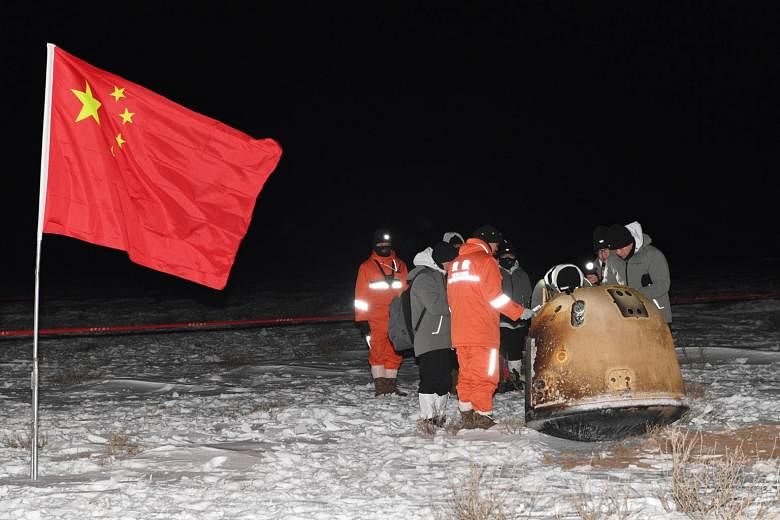BEIJING (CHINA DAILY/ASIA NEWS NETWORK) - Lunar samples weighing 1,731g were handed over for research at a ceremony on Saturday morning (Dec 19).
China will now invite more scientists around the world to join in its moon research in a bid to achieve more scientific results, according to an official from the China National Space Administration.
China will also solicit cooperation proposals extensively per the regulations on the management of lunar samples and data, said Wu Yanhua, vice administrator of the CNSA, Thursday at a press conference in Beijing.
In the Chang'e-5 mission, China coordinated and cooperated with countries and international organisations, including the European Space Agency, Argentina, Namibia, and Pakistan, in space tracking and control, Wu added.
Wu said China would implement multiple space missions, including Chang'e 6, Chang'e 7, Chang'e 8, asteroid exploration, Mars sampling returns, and Jupiter explorations in the future.
"China is willing to cooperate with relevant countries and international organisations to deliberate the basic capabilities for the initial construction of a lunar research station and test key technologies," Wu said.
Xu Hongliang, a spokesman from the CNSA, said scientists in many countries expressed their willingness to carry out moon research together as the samples brought back by Chang'e 5 are the world's freshest lunar samples in 44 years.
"We warmly welcome that," Xu said, adding that the CNSA has signed more than 140 cooperation agreements with more than 40 countries, and is deeply involved in the work of 18 international organisations.

"Moon samples are the mutual wealth of humanity, and we are willing to cooperate with our international counterparts on an equal and mutually beneficial basis," Xu said.
Xu also noted lunar sampling and data-sharing management should follow relevant treaties and United Nations regulations, as well as China's regulations.
"The CNSA will specifically issue administrative measures and follow-up policies for lunar samples," Xu said.
"We will solicit plans for moon sample analyses, and invite scientists from home and abroad to select plans, conduct research together, and share some of the achievements," Xu added.

